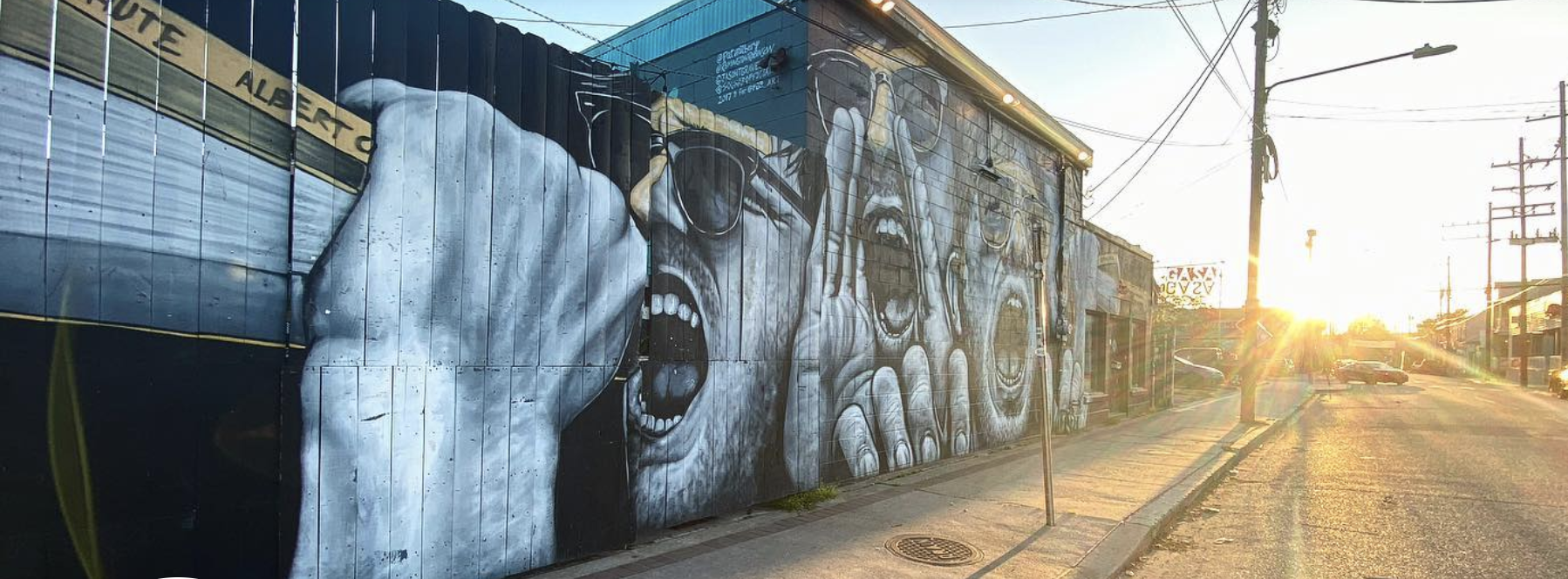Sinkane Called for Revolution on the Dance Floor at Gasa Gasa

The Brooklyn-based Sudanese Afro-funk-rock band showed its '60s countercultural roots on Wednesday night.
[Updated] When Sinkane wants revolution, it folds The Beatles’ “Revolution” into one of its own songs, “Ya Sudan.” Frontman Ahmed Gallab went there Wednesday night at Gasa Gasa after telling the story of revolution in his home country of Sudan—the only time Gallab stopped to explain anything. Otherwise, he let his songs speak in the broadest ways, which was more effective than that might sound.
Early in the set, yeyboard player Elenna Canlas sang:
We believe
That everybody means everybody
It means you and me
Black, white, brown
He, she, they
All means we
Gallab commits to broad expressions of political thought in his songwriting the same way that Bob Marley did, leaving the context out of the song so that the focus remains on the struggle itself and not the specifics of the conflict. The issues that prompted his lyrics are contemporary and personal as the Brooklyn resident explores his identity as an immigrant and Muslim in America in 2019, but the results sound like he’s speaking for people like him and people who can identify with him, not simply him. It’s risky because in the abstract, most civilized people believe that everybody means everybody (from the song, “Everybody” on Sinkane’s most recent album, Dépaysé), so the song sounds like a call for unity without rational opposition. What bogs down such calls is what unity looks like, and how the struggle is contextualized. Still, Sinkane’s “Everybody” works in the same way Marley’s songs do because it boils down the thought to such an extreme that it applies in a variety of contexts including this moment when white nationalists feel no need to keep their hatred under their hats. Sadly, it will apply in contexts we haven’t imagined 20 years from now.
Sinkane virtually begged for the Marley reference by covering his “No More Trouble,” but when the band dropped into reggae, it was more of a reggae hybrid, tinged with funk, rock and Sudanese pop. The band quoted War’s “Slippin’ into Darkness” as well, but the most relevant reference point was signaled by Sinkane’s multicultural lineup and Canlas, whose sang/shouted vocals brought to mind Cynthia Robinson’s in Sly and the Family Stone. She gave the songs an anarchic immediacy whenever she was the focal point, and the band plays a Sly-like semi-political Afro-funk-rock with a late ’60s optimism that is appealing because it’s an antidote to the Trump and social media moment. (Books will be written about that relationship for decades to come). Lead guitarist Johnny Lam added a valuable layer of psychedelic fuzz that reinforced the countercultural vibe, as did the commitment evident in Gallab’s vocals. He sang as someone who’d thought through the issues to arrive at the words he did, and delivered them with righteous—not self-righteous—clarity.
The band played and sang as if its cause made everything right, and in a way it did. It gave the band a clarity and sense of purpose that rationalized all musical, lyrical and performance choices. When Sinkane quoted Janet Jackson’s “Rhythm Nation,” is was chronologically out of the band’s sweet spot, but the idea that the revolution will be danced is right on message.
Updated September 20, 10:56 a.m.
The lyric in "Everybody" is "he she they," not "he she gay" as initially written. The lyric has been corrected.






